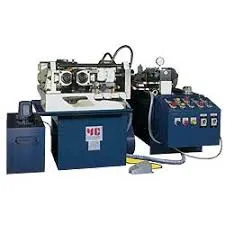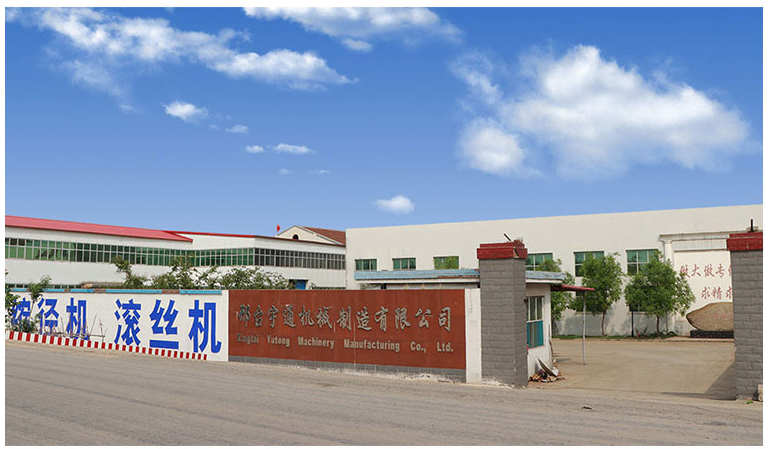
-
 Afrikaans
Afrikaans -
 Albanian
Albanian -
 Amharic
Amharic -
 Arabic
Arabic -
 Armenian
Armenian -
 Azerbaijani
Azerbaijani -
 Basque
Basque -
 Belarusian
Belarusian -
 Bengali
Bengali -
 Bosnian
Bosnian -
 Bulgarian
Bulgarian -
 Catalan
Catalan -
 Cebuano
Cebuano -
 Corsican
Corsican -
 Croatian
Croatian -
 Czech
Czech -
 Danish
Danish -
 Dutch
Dutch -
 English
English -
 Esperanto
Esperanto -
 Estonian
Estonian -
 Finnish
Finnish -
 French
French -
 Frisian
Frisian -
 Galician
Galician -
 Georgian
Georgian -
 German
German -
 Greek
Greek -
 Gujarati
Gujarati -
 Haitian Creole
Haitian Creole -
 hausa
hausa -
 hawaiian
hawaiian -
 Hebrew
Hebrew -
 Hindi
Hindi -
 Miao
Miao -
 Hungarian
Hungarian -
 Icelandic
Icelandic -
 igbo
igbo -
 Indonesian
Indonesian -
 irish
irish -
 Italian
Italian -
 Japanese
Japanese -
 Javanese
Javanese -
 Kannada
Kannada -
 kazakh
kazakh -
 Khmer
Khmer -
 Rwandese
Rwandese -
 Korean
Korean -
 Kurdish
Kurdish -
 Kyrgyz
Kyrgyz -
 Lao
Lao -
 Latin
Latin -
 Latvian
Latvian -
 Lithuanian
Lithuanian -
 Luxembourgish
Luxembourgish -
 Macedonian
Macedonian -
 Malgashi
Malgashi -
 Malay
Malay -
 Malayalam
Malayalam -
 Maltese
Maltese -
 Maori
Maori -
 Marathi
Marathi -
 Mongolian
Mongolian -
 Myanmar
Myanmar -
 Nepali
Nepali -
 Norwegian
Norwegian -
 Norwegian
Norwegian -
 Occitan
Occitan -
 Pashto
Pashto -
 Persian
Persian -
 Polish
Polish -
 Portuguese
Portuguese -
 Punjabi
Punjabi -
 Romanian
Romanian -
 Russian
Russian -
 Samoan
Samoan -
 Scottish Gaelic
Scottish Gaelic -
 Serbian
Serbian -
 Sesotho
Sesotho -
 Shona
Shona -
 Sindhi
Sindhi -
 Sinhala
Sinhala -
 Slovak
Slovak -
 Slovenian
Slovenian -
 Somali
Somali -
 Spanish
Spanish -
 Sundanese
Sundanese -
 Swahili
Swahili -
 Swedish
Swedish -
 Tagalog
Tagalog -
 Tajik
Tajik -
 Tamil
Tamil -
 Tatar
Tatar -
 Telugu
Telugu -
 Thai
Thai -
 Turkish
Turkish -
 Turkmen
Turkmen -
 Ukrainian
Ukrainian -
 Urdu
Urdu -
 Uighur
Uighur -
 Uzbek
Uzbek -
 Vietnamese
Vietnamese -
 Welsh
Welsh -
 Bantu
Bantu -
 Yiddish
Yiddish -
 Yoruba
Yoruba -
 Zulu
Zulu
Custom OEM Roll Thread Machines Precision & Durable Solutions
- Innovations in metal forming through threading technology
- Technical advantages driving modern manufacturing
- Comparative analysis of major equipment providers
- Cost variables across different production scales
- Tailored solutions for specialized applications
- Success stories from industrial implementations
- Operational excellence and long-term value considerations

(oem roll thread machine)
Revolutionizing Production with Precision Thread Rolling Systems
Thread rolling machines represent a transformative approach to metal component fabrication, particularly in construction scaffolding manufacturing where pipe joining integrity is critical. Unlike traditional cutting methods that remove material, these machines utilize extreme pressure (typically 10-15 tons) to cold-form threads through displacement hardening. This process enhances tensile strength by up to 30% compared to cut threads while simultaneously reducing material waste by 15-20%. Manufacturers increasingly prioritize these systems for high-volume production of load-bearing components where thread durability directly impacts structural safety.
Technical Superiority in Modern Thread Forming
Advanced PLC-controlled threading equipment achieves production rates of 70-120 pipes per hour through servo-driven automation. The latest generation incorporates adaptive feed mechanisms that compensate for material thickness variations up to ±0.5mm without manual intervention. Integrated laser measurement systems verify thread pitch accuracy within ISO 5864 standards, rejecting defective components at rates below 0.2%. Dual-head configurations enable simultaneous threading of pipe ends, reducing handling time by 40% compared to conventional single-head units.
Market Analysis: Equipment Provider Comparison
| Feature | Standard Models | Premium Models | Industrial-Grade Solutions |
|---|---|---|---|
| Maximum Pipe Diameter | 48mm | 60mm | 88mm |
| Thread Length Precision | ±0.15mm | ±0.08mm | ±0.04mm |
| Operational Cycles | 350,000 | 900,000 | 2M+ |
| Multi-Material Compatibility | Basic Steel Only | 3 Alloy Types | 7+ Material Grades |
| Tooling Cost/10K Units | $1,200 | $750 | $480 |
Investment Analysis Across Production Volumes
Price structuring follows distinct tiers based on operational capacity: Entry-level machines (<50 units/hour) begin around $28,000, mid-range systems (50-90 units/hour) range between $45,000-$68,000, while industrial configurations capable of 120+ units/hour command $112,000-$195,000. Maintenance considerations reveal substantial differences: economy models average $3.50/operating hour in upkeep costs versus premium systems at $1.20/hour. The 19-24 month ROI period for industrial units reflects their 92% operational uptime compared to 78% in entry-level alternatives.
Application-Specific Engineering Solutions
Scaffolding manufacturers increasingly demand machine configurations accommodating pipe wall thicknesses from 2.7mm to 6.5mm. Recent adaptations include retooling kits for tapered threads required in seismic zones and hardened diamond-style dies for galvanized surfaces. For high-strength alloy applications, hydraulic pressure can be calibrated beyond 25 tons with customized roller geometries. A leading Southeast Asian manufacturer reported 35% cycle time reduction after implementing modular dies enabling changeovers in 14 minutes versus industry-standard 45 minutes.
Real-World Implementation Case Studies
A Middle Eastern construction supplier documented 23% reduction in structural failure incidents after transitioning to rolled-thread scaffolding connectors. Production metrics showed 18% higher daily throughput and 67% less tooling downtime compared to their previous machining centers. Similarly, a European equipment rental company eliminated thread-stripping issues across their 22,000-unit fleet after adopting cold-formed joints, extending service life from 7 to 12 years. Post-installation inspections showed material compression patterns achieving optimal 85-95% thread engagement rates.
Strategic Acquisition Factors for Industrial Users
Evaluating OEM roll thread machine options requires balancing initial capital expenditure against long-term operational gains. Production managers should prioritize units featuring self-diagnostic systems that reduce technical downtime 37% according to industry studies. Energy consumption patterns merit close examination: modern frequency-controlled drives decrease power requirements by 22% compared to constant-speed motors. The most advanced configurations now incorporate predictive maintenance algorithms that alert operators to roller bearing wear patterns 200 operating hours before failure. Leading manufacturers report 17% higher production efficiency when selecting machines compatible with Industry 4.0 data integration protocols.

(oem roll thread machine)
FAQS on oem roll thread machine
Q: What factors affect the OEM roll thread machine price?
A: The price depends on machine capacity, customization requirements, and production volume. Higher precision and advanced features may increase costs. Bulk orders often qualify for discounts.
Q: How does an OEM scaffolding pipe thread rolling machine work?
A: It uses rotating dies to cold-form threads onto scaffolding pipes without cutting material. This ensures stronger threads and faster production. The process is ideal for high-volume OEM scaffolding manufacturing.
Q: Can OEM roll thread machines be customized for specific materials?
A: Yes, OEM machines can be tailored for materials like steel, aluminum, or alloys. Die configurations and pressure settings are adjusted for optimal results. Customization ensures compatibility with client-specific production needs.
Q: What quality certifications do OEM roll thread machines typically have?
A: Reputable OEMs provide ISO 9001-certified machines with CE compliance. Certifications ensure adherence to safety and performance standards. Third-party testing reports may also be available upon request.
Q: How do OEM roll thread machines differ from standard models?
A: OEM versions include client-branded components and modified features for specialized applications. They often integrate with existing production lines seamlessly. Custom warranties and service packages are also common for OEM buyers.
